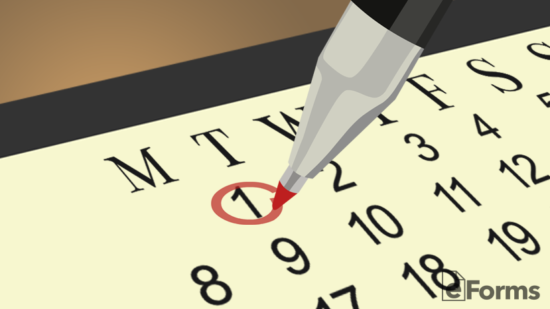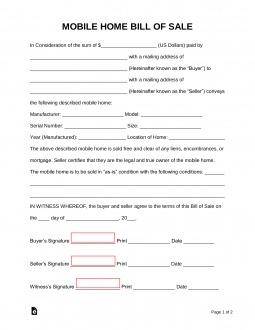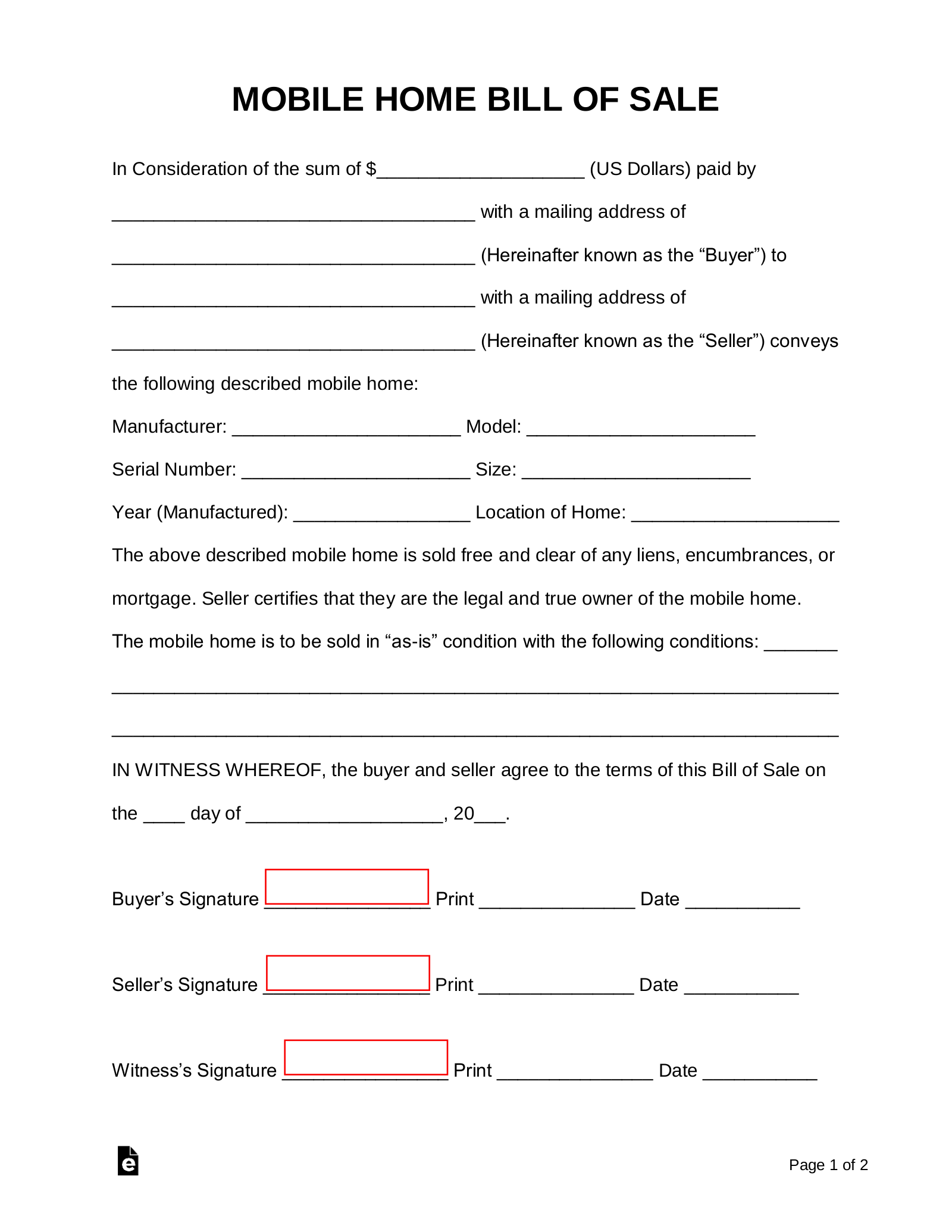Updated July 15, 2023
A mobile home bill of sale is used to prove the legal sale and purchase of a manufactured home (mobile home) between a buyer and seller. The buyer may provide a security deposit to the current owner while arrangement for a thorough inspection is conducted. After the inspection is completed and a favorable result is found, the sale may move forward. Once the transaction is completed, it’s recommended that a notary public witness the signing of the document. There is notary acknowledgment available at end of the document.
How to Use a Mobile Home Bill of Sale
This guide explains the process in most States for the purchase and sale of a mobile home.
Step 1 – Negotiate the Terms

The buyer and seller will be required to come to terms. This will include agreeing to a price for the mobile home. Typically, the seller will have a purchase price that is derived from the type of home is being sold (e.g. single wide, double wide, triple wide, etc.) combined with any land that may be included in the sale (if land is included it may be better to use the residential purchase agreement).
JDPower.com – Use this site to get an estimate of how much the manufactured home is worth. After entering the manufacturer, model name, State it’s located in, along with the height and width an estimated value will be displayed. This is just an estimate and is best to also look up what similar homes are selling for in your area with websites like Zillow.com and Craigslist.org.
Step 2 – Buyer’s Inspection

In most cases, the buyer will require that the sale of the home is contingent upon it passing an inspection by a certified inspector. Most reports should only take about forty-eight (48) hours from the time the inspection occurred and covers the foundation, plumbing, electrical, roof (leaks), siding, heating systems, hot water tank, and any other structural features of the home.
Step 3 – Agree to a Closing Date

Once the final sales amount is agreed upon by both parties a closing date should take place. At the closing, the seller will transfer possession of the mobile home by vacating and moving out their personal possessions.
Seller’s Responsibilities – Required to bring all documentation, including but not limited to, title, registration, past inspection reports, past repair invoices, lien release(s), and any other certificates that would be helpful or needed for the buyer to register the home in their State.
Buyer’s Responsibilities – Required to bring the funds for the closing in either cash, certified check, money order, or a standard personal check.
Step 4 – Attend the Closing

The parties will be required to authorize the mobile home bill of sale along with the seller signing over the title to the buyer. At the same time, the buyer will need to present the seller with payment for the mobile home.
Afterward, the buyer will be able to take possession of the mobile home and transfer the residence to a lot of their choice.
Step 5 – Register the Mobile Home

After all the documents are signed, the buyer will need to go to the Department of Motor Vehicles (DMV) or equivalent office and register the mobile home. If the home did not come with land, it will be treated like any other transferrable or removable asset which is covered by the buyer’s local DMV office.
In most cases, the buyer will need to bring title, current/past registration, proof of insurance, mobile home bill of sale, and government issued identification.
Depending on the State there will also be registration fees based on the value of the mobile home in addition to a sales tax.


